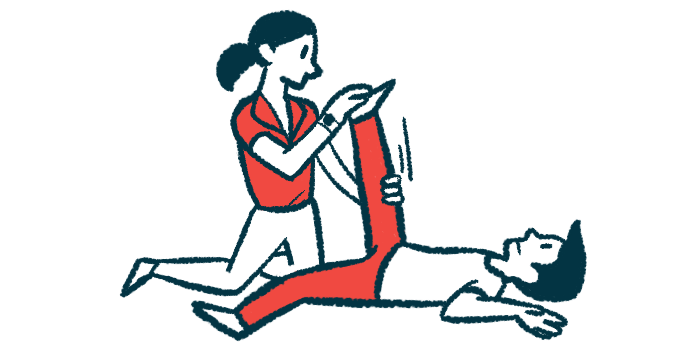Muhammad Ali Parkinson Center, at 25, Looks Ahead With Hope
Written by |

Holly Shill, director of the Muhammad Ali Parkinson Center at the Barrow Neurological Institute, is marking the facility’s 25th year with a bold prediction: within the next 25 years, researchers will find ways to prevent Parkinson’s disease (PD) progression.
Shill, a movement disorder neurologist, started as a neurology resident at Barrow in 1995, two years before the center was established. Since then, she said she has witnessed significant advancements in Parkinson’s treatment and care so that, along with her medical team, she is optimistic about what the future will bring.
“Our patients are living longer, higher-quality lives after being diagnosed because we have better understandings about the medical, surgical, and supportive interventions that are available today,” Shill said in a press release. “Research is still incredibly important. I truly believe that over the next 25 years, research efforts — at the Muhammad Ali Parkinson Center and in the Parkinson’s community around the world — will lead to groundbreaking discoveries that will help us stop Parkinson’s progression in its tracks.”
Research at the Phoenix center focuses in part on genetic factors associated with disease, while its clinical investigations seek to better understand how it develops and progresses. One such effort is the ongoing Parkinson’s Progression Markers Initiative (PPMI), of which the center is a part, to identify biomarkers and other clinical changes linked to disease risk, onset, and progression that could lead to better treatments.
As part of its 25th anniversary, the center is highlighting work into areas such as brain mapping, light therapy for sleep issues, and the effects of deep brain stimulation on patient gait and falls. The center is also studying potential environmental links between mining and welding and Parkinson’s, virtual reality-style goggles in evaluating eye movement patterns, and the use of palliative care in determining predictors of likely outcomes and helpful interventions.
“I am very proud of our team here at the Muhammad Ali Parkinson Center,” Shill said. “We are at the forefront of finding answers. Our team is devoted to increasing access to care and research by educating future neurologists, offering virtual and telemedicine opportunities, and breaking language barriers with cultural sensitivity.”
The 26,450-square-foot facility that is named for Muhammad Ali, the three-time world heavyweight boxing champion who was diagnosed with Parkinson’s in 1984 and died of disease complications in 2016, has provided care to more than 50,000 individuals to date. In addition to cutting-edge research, the center offers outreach programs that include educational workshops, recreational therapies, support groups, and a 15-year-old Hispanic Outreach Program.
“Muhammad was proud to lend his name to the center when it opened, and I know he would be proud of where it is now and how far reaching it has become,” said Lonnie Ali, who was married to the boxer for 30 years.
Julie Raymond, 65, was diagnosed with Parkinson’s in 2021 with symptoms of extreme fatigue, hand tremors, and arm stiffness. Through the center, Raymond has participated in a clinical trial as well as education classes, a support group for new patients, a Pilates class, and a seminar for patients and caregivers.
“Finding the right connections can make an incredible impact on your life after diagnosis,” Raymond said. “I have learned so much since I started participating in the programs offered by the Muhammad Ali Parkinson Center.”



